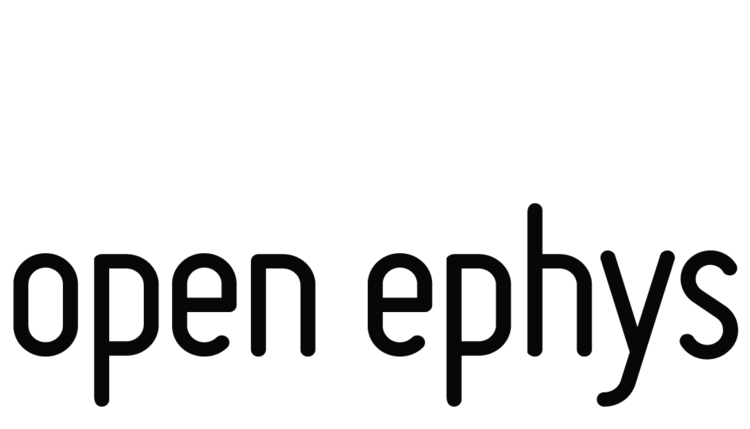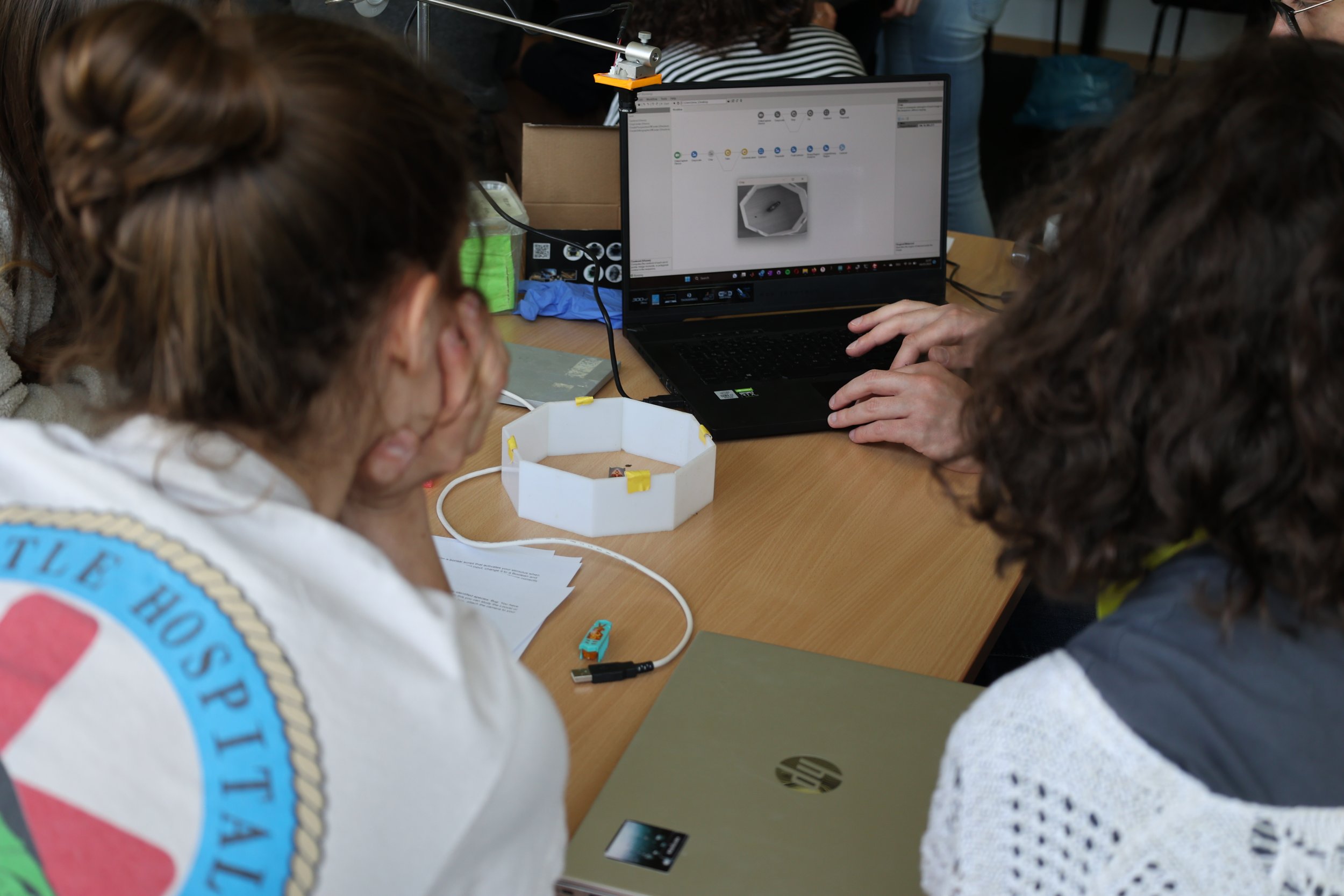May was an exciting time for the Training team at Open Ephys. Read more about the two awesome events we participated in…
In early May we participated in a workshop during NeuroDoWo (Konstanz, Germany) with activities to learn about closed-loop behavior and electrophysiology. The week after, we gave lectures about Open Ephys and UCLA Miniscopes and contributed to the practical sessions of the Paris Neuro Course (Paris, France).
At NeuroDoWo, we talked about what events in a neural signal or in behavior can serve as triggers of effects on the subject or the behavioral arena. We looked at how to acquire and detect events with the Open Ephys GUI using our classic acquistion system, as well as in Bonsai using a behavioral camera for these closed-loop applications.
Open Ephys GUI working with the Acquisition Board in a closed-loop example that outputs a TTL pulse when a peak in the phase is detected.
Detecting animal entry intro a region of interest using a webcam and Bonsai in order to trigger subsequent events.
Participants then experienced these concepts first hand as they tracked insects and lit an LED based on their location, tried some online spike sorting on neuronal data, and used real-time pose estimation on themselves to make different body part positions modulate sound. They had lots of fun moving through the different activity stations and learnt a lot.
“It was fun and interesting to ask questions directly to an expert about the possibility and limits of using the GUI for ephys data analysis”
“It was a very interactive workshop and we could experience a wide variety of tools in a short amount of time”
Students learning about online spike detection and sorting in the Open Ephys GUI.
Students tracking robot insects in the Bonsai software.
At the Paris Neuro Course, we presented the UCLA Miniscope system, sharing insights about how user feedback shapes iterations of the tools we produce. The students also got to work with our new coaxial commutator and had a glimpse of how miniscopes can be used in Bonsai and synchronized with external hardware to integrate calcium imaging acquisition with behavioral paradigms.
The UCLA Miniscope is assembled from three 3D printed modules, lenses, a filter set and a PCB with all the electronics. It is straightforward and can be built in a couple of hours without the need for soldering or specialized tools.
During the practicals, students were led through an in-vivo imaging experiment from start to finish. They built their own scopes using our UCLA Miniscope assembly kits, observed the surgery, imaged animals during navigation in a complex arena and analyzed their data. Unreal, huh?
Inserting the lenses into the miniscope body.
Removing burrs from the 3D print of the body.
Checking that everything is spotless before assembly to ensure a clear field of view.
We often find that Neuroscientists that have not heard of us before are impressed with the straightforward implementation and low entry price of the system, and this was no exception. This makes us happy. They also got to hear about Open Ephys as a whole from one of the co-founders, Josh Siegle, who is responsible for most of the Open Ephys GUI (a founder that gets their hands dirty👷!).
Our educational and showcase activities strive to be interactive and open-ended so participants can experience challenges directly and attempt to answer their own questions. The goal is to provide general concepts that can be applied to different scenarios, using our open-source tools as examples to understand them. We also highlight features of open projects such as how they can be customized and how to contribute to expand them. This approach helps identify knowledge and need gaps so we can improve our training services and our tools to better serve users.
We want to extend a huge thanks to the course organizers and the rest of the teaching team for making such rewarding events for discussion and learning. Feel free to reach out to training[at]oeps.tech if you are interested in setting up similar activities with us.
You can find resources to learn more below. Until next time!
Slides from the NeuroDoWo workshop on closed-loop behavioral neuroscience focusing on electrophysiology.
Slides from the Paris Neuro Course on Miniscopes at Open Ephys
Neurokit course on Extracellular Electrophysiology Acquisition
Synchronous course application, Kit for the self-paced course and Open-source course materials
Our Training services for the Open Ephys Acquisition Board and UCLA Miniscopes
Documentation for using our Acquisition Board and GUI.
The Open Ephys GUI includes sample data and you can stream it to try online signal processing without an acquisition board.
The activities in Bonsai can be recreated following their video tracking tutorial and by using our real-time pose estimation activity.
Thank you to both course organizations for the course pictures. Please use other materials in accordance to the CC-BY-SA license.
Want to join the team? Check out our open positions and apply!








